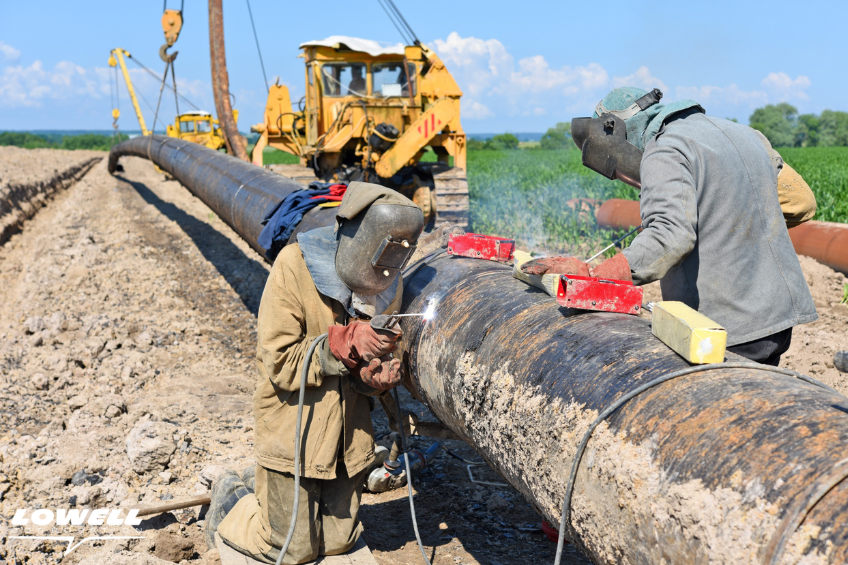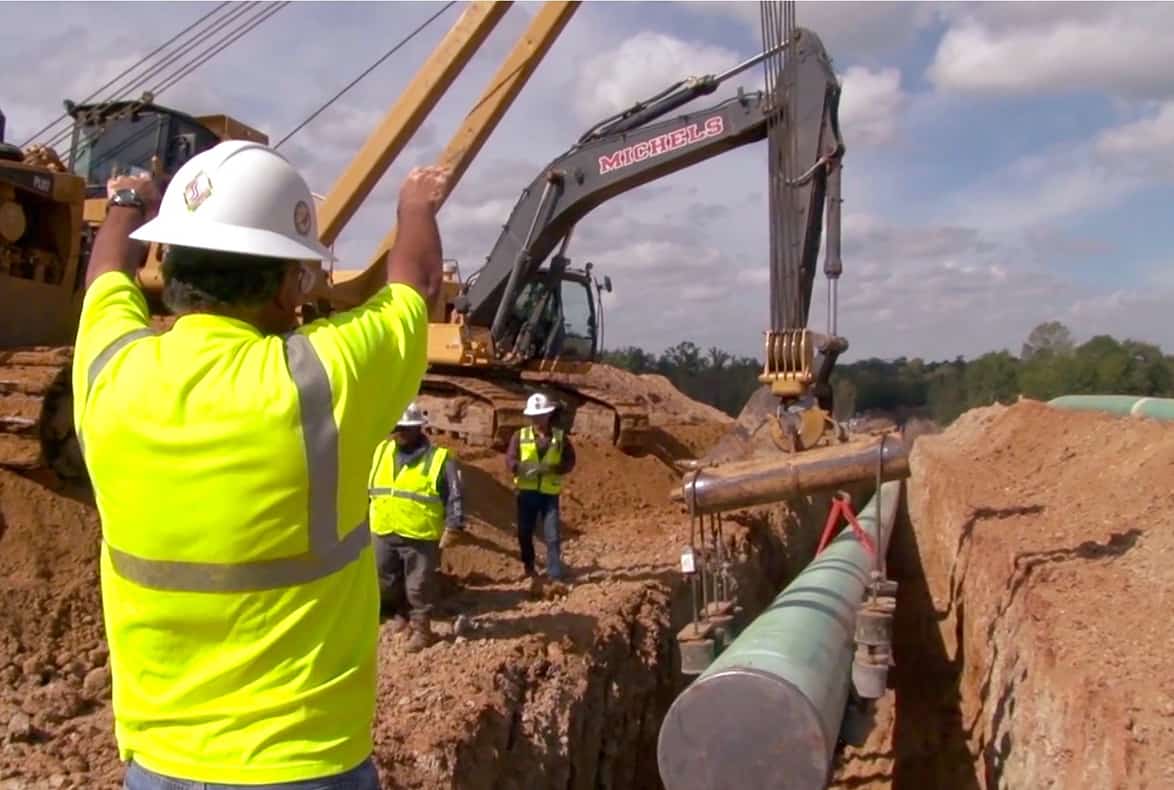Creek Pipe Midland TX: The future of oilfield services
Comprehending the Trick Features of Pipeline Services and Their Effect On Performance
Pipeline services play an essential duty in numerous markets, affecting functional effectiveness noticeably. Key features, such as sophisticated surveillance innovations and maintenance techniques, are crucial for minimizing downtime. Furthermore, governing conformity guarantees safety and environmental management. However, the interplay in between design, framework, and economic factors can make complex these procedures. Understanding how these aspects impact total efficiency raises important inquiries about best methods and future developments in the field.
The Role of Innovation in Pipeline Surveillance
As improvements in technology continue to progress, the importance of effective pipe surveillance has actually become significantly obvious. Modern pipe systems rely upon advanced tracking tools that improve functional effectiveness and security. Technologies such as real-time information analytics, sensing units, and drones supply drivers with immediate understandings into pipeline conditions, enabling them to find leakages, rust, and various other prospective concerns before they rise into substantial troubles.
The assimilation of Internet of Things (IoT) devices has changed traditional tracking approaches, enabling for continual monitoring and automated coverage. This positive strategy not only lessens dangers however additionally optimizes upkeep timetables and source allowance. Furthermore, progressed software program platforms promote information visualization and interpretation, empowering decision-makers to respond swiftly to anomalies. Collectively, these technological innovations not only enhance pipe stability however also foster ecological stewardship by alleviating the potential influence of leaks and spills.
Maintenance Strategies for Improved Effectiveness
Reliable upkeep approaches are vital for maximizing pipe effectiveness. Applying anticipating maintenance strategies, adhering to routine inspection procedures, and developing durable emergency feedback strategies can considerably improve operational reliability. These methods not only minimize downtime yet also add to the overall safety and honesty of pipe systems.
Anticipating Maintenance Strategies
Anticipating upkeep techniques are significantly acknowledged for their capacity to improve operational efficiency in pipeline services. By leveraging data analytics and checking modern technologies, these strategies make it possible for drivers to expect devices failures prior to they take place. This aggressive strategy lessens unintended downtime, minimizes maintenance expenses, and extends the lifespan of crucial properties. Sensors and IoT devices play a critical role in gathering real-time information, permitting for the assessment of tools health and performance patterns. Artificial intelligence formulas examine this data to determine patterns and forecast prospective issues. Pipeline operators can arrange upkeep tasks throughout non-peak times, maximizing resource appropriation and ensuring continual procedure. Eventually, the fostering of predictive upkeep promotes a more reputable and efficient pipe framework.

Routine Evaluation Protocols
Routine assessment protocols work as a cornerstone of maintenance techniques targeted at boosting effectiveness in pipeline procedures - Creek Pipe Midland TX. These protocols involve methodical assessments of pipe honesty, concentrating on identifying possible issues prior to they intensify. Routine evaluations typically include aesthetic assessments, leakage detection innovations, and pressure tracking to guarantee peak efficiency. By sticking to well established routines, operators can determine deterioration, material wear, or blockage, thereby decreasing downtime and fixing costs. Additionally, information collected during examinations can inform anticipating upkeep initiatives, allowing for a proactive strategy to pipe management. Eventually, regular evaluations not only extend the lifespan of pipe infrastructure yet additionally add to much safer and more reputable transport of resources, strengthening total functional efficiency
Emergency Situation Response Preparation
Emergency situation response planning is necessary for preserving effectiveness in pipeline operations, guaranteeing that operators are prepared to deal with unexpected cases quickly and effectively. A well-structured emergency feedback strategy includes clear protocols, designated functions, and interaction approaches to reduce dangers connected with pipeline failures. Routine drills and training boost group preparedness and acquaint workers with emergency situation procedures. In addition, having conveniently available resources, such as spill containment tools and emergency situation contact listings, can considerably minimize reaction times. By integrating real-time surveillance technologies, operators can quickly identify and respond to concerns, minimizing ecological effect and functional downtime. Ultimately, a complete emergency reaction strategy not just safeguards possessions and personnel but likewise enhances the overall efficiency of pipe solutions.
Governing Compliance and Security Criteria
Governing compliance and security standards play a vital role in the pipe solutions sector. Pipeline services Midland Texas. Abiding by industry laws ensures that firms carry out efficient security procedures and run the risk of administration techniques. This commitment not only protects employees and the setting yet also boosts general operational efficiency
Compliance With Sector Regulations
Conformity with market policies is important for making certain the safety and security and performance of pipe operations. Regulatory structures, such as those established by the Environmental Defense Company (EPA) and the Pipeline and Hazardous Products Safety Management (PHMSA), set strict requirements that drivers should abide by. These guidelines cover different elements, including pipe layout, building and construction, maintenance, and surveillance, assuring that systems run safely and properly. Non-compliance can lead to serious fines, functional delays, and environmental dangers. By adhering to these guidelines, pipe firms not only secure public security and the environment but likewise improve their operational efficiency. Ultimately, regulatory compliance fosters trust fund amongst stakeholders, guaranteeing that pipeline services can operate seamlessly in a competitive landscape while fulfilling legal commitments.

Safety Procedure Application
Reliable safety and security method execution is a vital component of pipeline procedures, closely linked to regulatory conformity and safety requirements. Complying with these methods not just ensures the defense of workers but also safeguards the setting and framework. A durable safety structure consists of regular training, thorough assessments, and using suitable safety tools. Organizations should remain attentive in upgrading their protocols to show modifications in regulations and technological developments. Compliance with well-known safety and security requirements minimizes the threat of crashes and click over here improves operational efficiency. Furthermore, a culture of safety promotes employee involvement and accountability, contributing to overall business success. Eventually, reliable security method application is extremely important in keeping the integrity of pipe services and achieving lasting sustainability in procedures.
Risk Management Approaches
Applying durable danger management methods is crucial for assuring that pipe operations adhere to regulative needs and safety standards. Organizations should recognize prospective risks and examine dangers related to pipe tasks. This includes performing detailed evaluations, utilizing sophisticated monitoring technologies, and preserving compliance with market guidelines. Regular training for workers on safety procedures enhances situational recognition and prepares groups to respond successfully to emergencies. In addition, establishing backup strategies and carrying out drills can significantly reduce threats. Collaborating with regulative bodies makes sure placement with developing security criteria. By focusing on danger management, pipe solutions can boost functional effectiveness while securing both the environment and reference public safety and security. Inevitably, a proactive method to take the chance of management fosters a culture of security within the sector.
Pipeline Layout and Facilities Considerations
Just how can the layout and infrastructure of pipelines affect general functional efficiency? The arrangement of pipes plays a critical role in establishing their performance. Effective design decreases rubbing losses, thus decreasing energy usage throughout liquid transport. Variables such as size, material choice, and format directly impact circulation prices and maintenance requirements.
Furthermore, critical positioning of shutoffs and monitoring systems enhances functional control and safety. Midland oilfield pipeline services. Framework factors to consider, including access for repair and maintenance, significantly affect downtime and general productivity
Furthermore, incorporating innovative innovation for real-time surveillance assists in timely discovery of leaks or ineffectiveness, making sure speedy feedbacks to problems. The general architectural stability, influenced by material toughness and environmental factors, additionally forms lasting functional success. Consequently, thoughtful design and durable facilities are necessary for maximizing pipe performance, eventually adding to the reliability and success of pipeline services.
Ecological Impact and Sustainability Practices
While the need for pipe services remains to expand, comprehending the ecological impact and adopting sustainability techniques has actually ended up being increasingly vital. The construction and operation of pipes can notably influence ecological communities, wildlife habitats, and water sources. To minimize these impacts, companies are applying advanced innovations and techniques aimed at decreasing exhausts, protecting against spills, and decreasing land interruption.
Sustainability initiatives usually consist of utilizing eco pleasant products, improving power performance, and employing sustainable energy sources to power operations. In addition, companies are progressively carrying out thorough ecological evaluations before job initiation, making certain conformity with guidelines and stakeholder involvement.

Cost Monitoring and Financial Consider Pipeline Providers
As the pipeline sector expands, reliable cost administration and recognizing financial elements come to be vital for keeping competition. Companies face different financial stress, consisting of changing material expenses, labor expenditures, and find this governing compliance fees. To navigate these obstacles, pipeline company should take on critical financial planning and budgeting techniques.
Buying innovation can boost functional performance, eventually reducing costs over time. In addition, efficient project management guarantees that resources are assigned successfully, decreasing delays and unanticipated expenses.

Market conditions, such as need for power and geopolitical factors, additionally influence financial practicality. Companies need to continue to be agile, readjusting their strategies in action to these external variables.
Regularly Asked Concerns
What Are the Different Sorts Of Pipeline Services Available?
Different sorts of pipe solutions include transportation, storage space, upkeep, inspection, and fixing. Each service plays a critical duty in making sure the smooth activity of products, enhancing safety, and lessening operational disruptions across various markets.
Just How Usually Should Pipeline Inspections Be Carried Out?
Pipeline evaluations need to be carried out frequently, typically each to three years, depending upon the type and condition of the pipeline. Much more regular assessments may be essential for older or high-risk pipes to guarantee security and honesty.
What Are the Main Causes of Pipeline Failures?
The major root causes of pipeline failings include rust, malfunctioning construction, material flaws, exterior damage, leaks, and operational errors. Each factor contributes considerably to possible dangers, highlighting the value of regular upkeep and monitoring for safety.
How Can Firms Boost Pipeline Solution Dependability?
Firms can enhance pipe service dependability by implementing normal upkeep schedules, using advanced tracking technologies, performing extensive examinations, investing in staff member training, and adopting aggressive threat monitoring techniques to prepare for and mitigate prospective failures.
What Function Do Operators Play in Pipeline Providers?
Operators play a crucial duty in pipeline solutions by guaranteeing safe transport, preserving equipment, keeping track of system honesty, working with maintenance, and responding to emergencies. Their competence straight affects functional performance and minimizes disturbances in service shipment.